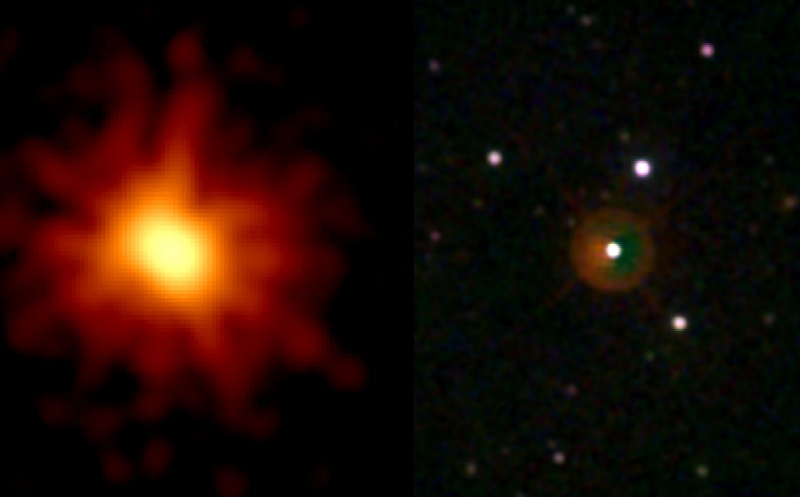Across the Universe

Explanation:
How far can you see?
Even the faintest
stars visible to the eye are
merely hundreds or thousands of light-years distant, all well
within our own
Milky Way Galaxy.
Of course, if you know
where to look
you can also spot the
Andromeda Galaxy as a pale, fuzzy cloud,
around 2.5 million light-years away.
But staring toward the northern constellation
Bootes on March 19th, even
without binoculars or telescope you still
could
have witnessed
a faint, brief, flash of light from a
gamma-ray burst.
The source of that burst has been discovered to lie
over halfway across the Universe
at a distance of about 7.5
billion
light-years.
Now holding the distinction of the most distant object that could
be seen by the unaided eye and the intrinsically brightest object
ever detected, the cosmic explosion is estimated to
have been over 2.5 million times more luminous than the brightest
known
supernova.
The monster burst was identified and located by the orbiting
Swift
satellite, enabling rapid distance measurements and follow-up
observations by large ground-based telescopes.
The fading afterglow of the gamma-ray burster,
cataloged as GRB080319B, is
shown in these two panels in
X-rays (left) and ultraviolet light (right).
Authors & editors:
Robert Nemiroff
(MTU) &
Jerry Bonnell
(USRA)
NASA Web Site Statements, Warnings,
and Disclaimers
NASA Official: Jay Norris.
Specific
rights apply.
A service of:
LHEA at
NASA /
GSFC
& Michigan Tech. U.

